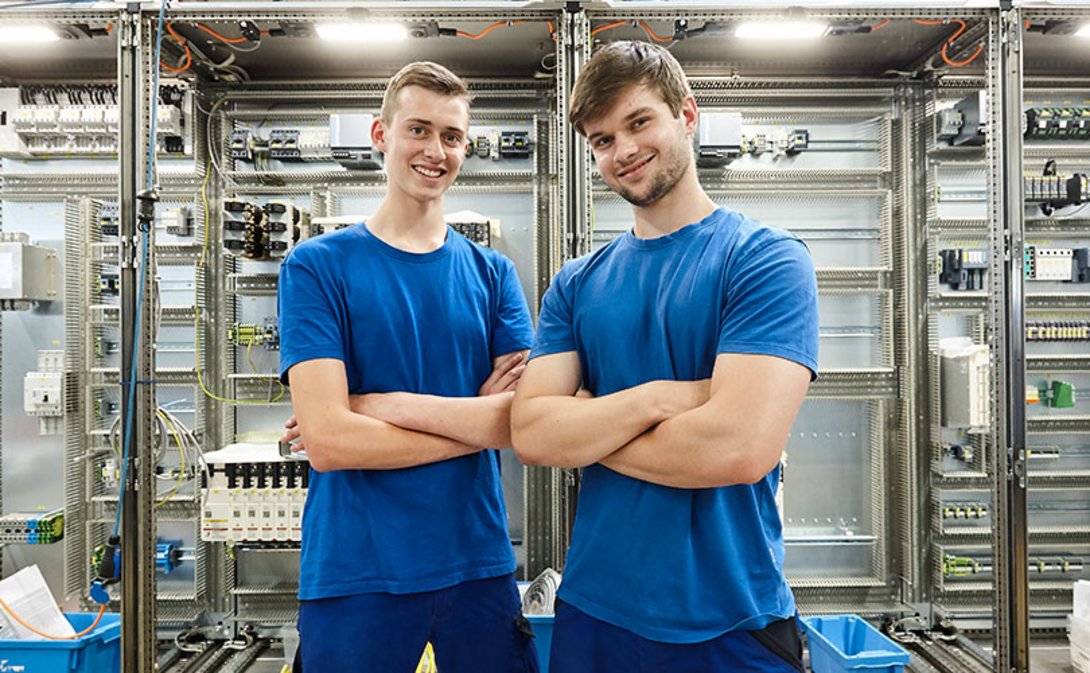Achieve more from person to person.
His actions spoke louder than words. When it came to his commitment to others, company owner Anton Waldner was not one to shout about it. But why not? He was an entrepreneur... And as such, he believed that taking responsibility and caring for others went without saying. Today, we tell that story all the same – as a treatise on greater human potential in society and day-to-day work.
To understand what welfare means at Waldner, let’s take a step back in time. In 1961, proprietor Anton Walnder catches the mood of his workforce and opens a canteen with full catering at the Wangen plant. Not only does this top benefit relieve the financial burden on employees, it also reflects an empathetic sense of their needs: someone is looking after them, thinking about them as people, no longer stating that wellbeing is a private matter. Anton Waldner was ahead of his time with such a corporate stance. Today, company canteens have long been taken for granted, and other benefits have become our top benefits. Anton Waldner’s spiritual legacy remains with us and continues to shape Waldner.
Commitment to education:
Give people opportunities, secure their future.As economical Anton Waldner was with words, so he was generous with his actions when it mattered. To employees building their own homes in the post-war period he granted interest-free loans. A commitment to education was particularly important to him. Give people opportunities, secure their future! Just as we are currently helping Michael Ofurum, who fled to Germany and is training to become a cutting machine operator with us, Anton Waldner supported the training of disadvantaged youths in Italy from 195X. Despite the language barriers and bureaucratic hurdles that were as much a part of life as they are today, he succeeded in helping the young graduates find work and earn a living, even bringing some back to Wangen. Looking at the global refugee and migration situation today, we know what he would have done, and what we need to do: As one of the largest employers in the region, we need to strive more towards better education and job integration because of our particular social responsibility.
Working together as colleagues: together as humans
.Anton Waldner was also a pioneer when it came to his commitment to collegial working. In the 1950s, good collaboration was not taught through team-building or conflict management, but instead in a person's private life – preferably as a member of an association. Which makes it all the more remarkable that Anton Waldner seeded such a support model in the work context as early as 1954 by establishing the Waldner Sozialhilfe e.V. (Waldner Social Welfare Association). Seventy years later, and the association is still active – whether it’s about helping an employee hit by a once-in-a-century flood event, or being there for a colleague who’s suddenly fallen ill on unpaid care leave. And today, our private life is welcome to be discussed in our day-to-day work life, and not just in the social welfare association – because that’s what creates the feeling of family that so many of us at Waldner sense.
Health management: together for more exercise.
The desire to give something back for the success of his company continued to drive Anton Waldner in his commitment to welfare. He introduced company benefits, such as the then Waldner denture grant, where there was a real need and from which as many employees as possible could profit. So too do we act today by offering a variable WellCard, designed to promote self-care no matter where, or by negotiating leasing conditions to motivate people to switch to a company bike and reap the long-term benefits of greater exercise. We also understand that our company benefits need to match the growing expectations that today’s employees have of a good workplace.
Engine for human potential
Ever since the pandemic, job expectations are marked by flexibility, new work, mobility and physical and mental health. Understanding such trends in needs helps us to tailor our company benefits more precisely. Today, there is far more room for flexibility at Waldner than before the pandemic – we offer hybrid working models, we strive to be role models for each other when it comes to matters of “self-care and mental balance”, and as managers our goal is no longer to be models of productivity alone. Far more than in Anton Waldner’s time, we are today committed to ensuring every individual lifestyle is accepted in the work environment and is reflected in our corporate values. Whether it’s about the place of work, working hours, a year abroad, a career move or family time, to realise our human potential, one thing is needed above all else, even more than empathy and understanding trends in needs: open dialogue. (From person to person.) And in that spirit, it’s good that we’ve chatted about it.

0 Comments
No Comments